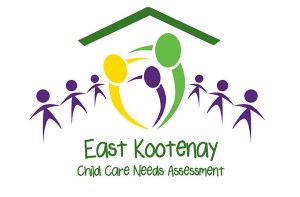Home »

Childcare crisis in the East Kootenay
Childcare needs in the East Kootenay have reached a crisis stage, reports the East Kootenay Child Care Task Force.
An East Kootenay Child Care Needs Assessment of the current childcare needs in the East Kootenay (Cranbrook and area, Creston, Columbia Valley and Kimberley) was undertaken in 2014. The assessment and final report identified a childcare crisis in the East Kootenay,
In the report, families, early childhood educators, childcare operators, community stakeholders, business, First Nation and local government representatives from Canal Flats, Invermere, Wilmer, Spillimacheen, Radium Hot Springs, Cranbrook, Moyie, Fort Steele, Bull River, Wardner, Kimberley, and Creston describe what their communities are facing as a significant child care challenge and crisis.
 Jane Boyd (45 Conversations), who was hired by the East Kootenay Child Care Task Force to lead the childcare assessment project, concludes that the childcare crisis in the East Kootenay requires immediate attention to support the sustainable operation of child care facilities as well as to develop affordable quality child care for all children in the East Kootenay.
Jane Boyd (45 Conversations), who was hired by the East Kootenay Child Care Task Force to lead the childcare assessment project, concludes that the childcare crisis in the East Kootenay requires immediate attention to support the sustainable operation of child care facilities as well as to develop affordable quality child care for all children in the East Kootenay.
“The supply of child care in each of these communities is not sufficiently balanced to meet the current or future child care needs of families who reside in these areas,” stated Boyd, adding, “many employees in child care programs in the East Kootenay juggle work situations that are next to impossible.”
Part of the childcare crisis relates to how difficult it is to attract certified staff to work in community-based childcare programs in the East Kootenay. Currently, 18 early childhood educator positions are vacant. Many of these employment positions have been available for over a year. The East Kootenay has the highest number of vacant early childhood positions in the B.C. Interior.
The lack of qualified early childhood educators has resulted in the reduction of early learning and childcare spaces, which include full closures of once viable early learning and childcare programs. Childcare centre administrators are continually forced to choose between hiring teachers who have minimal or no early childhood education training or reducing programs and services to children.
Although the East Kootenay Child Care Needs Assessment – Phase One focused on collecting data to better understand factors that affect childcare in the East Kootenay, it is clear from the report the solutions to this childcare crisis require a collective willingness of governments and governing bodies to pool their resources.
In the short term, these pooled resources can be used to:
– Institute a wage compensation grant that results in increased wages for all provincially certified early childhood educators and early childhood educator assistants working in licensed child care settings in the East Kootenay.
– Designate and fund full-time spaces in post-secondary education institutions that offer a provincially accredited early childhood education program in a face-to-face on-campus format.
– Forgive student loans for students who complete a certificate in a provincially accredited face-to-face early childhood education program within one year of registration.
– Initiate a rural communities living allowance, similar to a northern living allowance, for certified early childhood educators living outside the East Kootenay who are willing to make a two-year commitment to a rural community within the East Kootenay.
In the long term, these pooled resources can be used to research the viability of moving to a fully funded and supported apprenticeship designation for early learning and childcare in British Columbia.
They can also provide ongoing funding supports to address the immediate crisis in early learning and care in rural communities that include enhanced wages and working conditions for early childhood educators.
They also suggest the creation a five-year rural communities early learning and care strategic plan with community stakeholders that can enhance the quality of early childhood development, education, learning, and care.
The number of vacant employment positions is not a surprise to early childhood educators who have left early learning and childcare positions. Early childhood educators face significant challenges in the delivery of accessible, affordable, high quality childcare.
“Long hours, low wages, and staff shortages can take a toll on even the most experienced child care provider,” said Mary Noble, Children First and Success By 6 Coordinator for the East Kootenay, “early childhood educators who leave their careers just get tired of waiting for governing bodies to address their concerns.”
When asked about their future plans, 19 of 39 respondents on the East Kootenay Child Care Needs Assessment stated they were either considering or undecided about finding work outside of the childcare field.
“Such findings are of extreme concern when programs are already facing significant operational challenges with respect to delivering of accessible, affordable, high quality child care programs,” reported Boyd, the consultant who led the East Kootenay Child Care Needs Assessment, “the loss of any of these educators will likely result in program closures.”
Early childhood educators have an important role in contemporary societies. They work alongside parents, grandparents, and other adults in guardian positions to enhance the quality of young children lives. Early childhood educators and other direct care providers are an extension of family for children who attend preschool, day care, and out of school care programs. It is the quality of the program that makes the difference in the early years.
Since there is generally a correlation between the quality of education and the quality of professional practice, it is concerning to regional service providers to discover that only five of 41 early years practitioners who responded to the question about training indicated they were continuing their studies in early childhood education. Financial barriers as well as limited access to quality mentorship programs were identified as deterrents for students.
“It doesn’t make sense to take on debt to obtain education in a poorly paid field,” the East Kootenay Child Care Assessment stated.
The following critical issues were identified by the report:
– The supply of childcare is not sufficient to meet the current or future childcare needs of families in the area.
– Current employees in the childcare system juggle challenging work situations and conditions due to low wages and limited full time employment opportunities.
– It is difficult to attract certified staff to work in community based childcare programs in the East Kootenay.
– There are identified issues with respect to training and professional development for those currently working in childcare programs in the East Kootenay. The childcare crisis in the East Kootenay requires immediate short term attention to support existing childcare services as well as long-term goals and an action plan to support the development and sustainable operation of childcare facilities as well as affordable and quality childcare for all children in the East Kootenay.
The East Kootenay Child Care Task Force was formed in 2013 by representatives from East Kootenay Children First, East Kootenay Success By 6, East Kootenay Child Care Resource & Referral with other East Kootenay community members who experienced and/or who serve children, families, and child care programs impacted by childcare in the East Kootenay.
The East Kootenay Child Care Needs Assessment – Phase One was funded by the Social Grants Program of the Columbia Basin Trust with additional funding and gifts-in-kind from the East Kootenay Child Care Task Force and 45 Conversations.
A copy of the full report can be accessed HERE.
For more information about the East Kootenay Child Care Task Force and the crisis in early learning and child care contact Mary Noble, Children First Manager, by phone at 250-426-2542 or by email at [email protected].
e-KNOW







